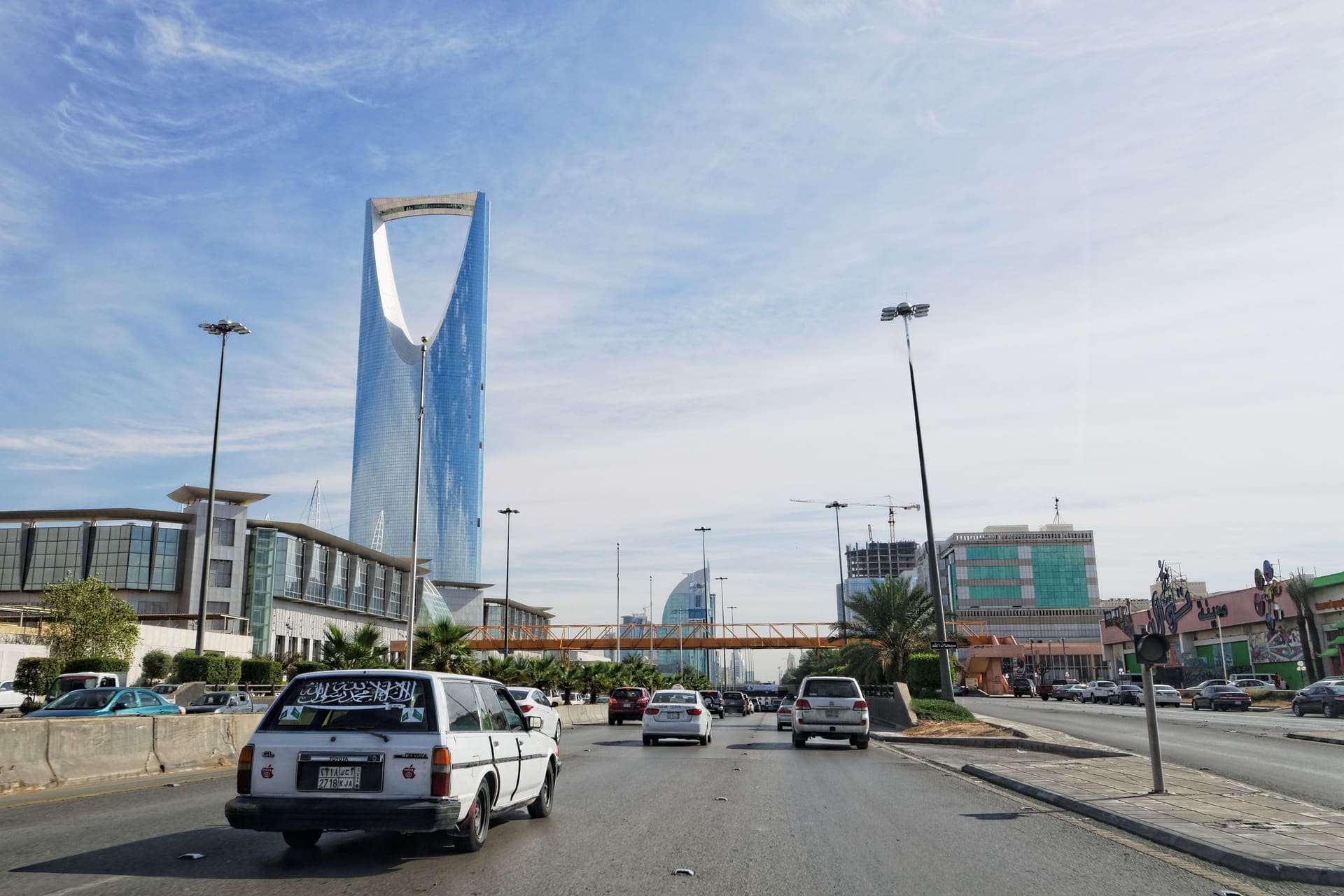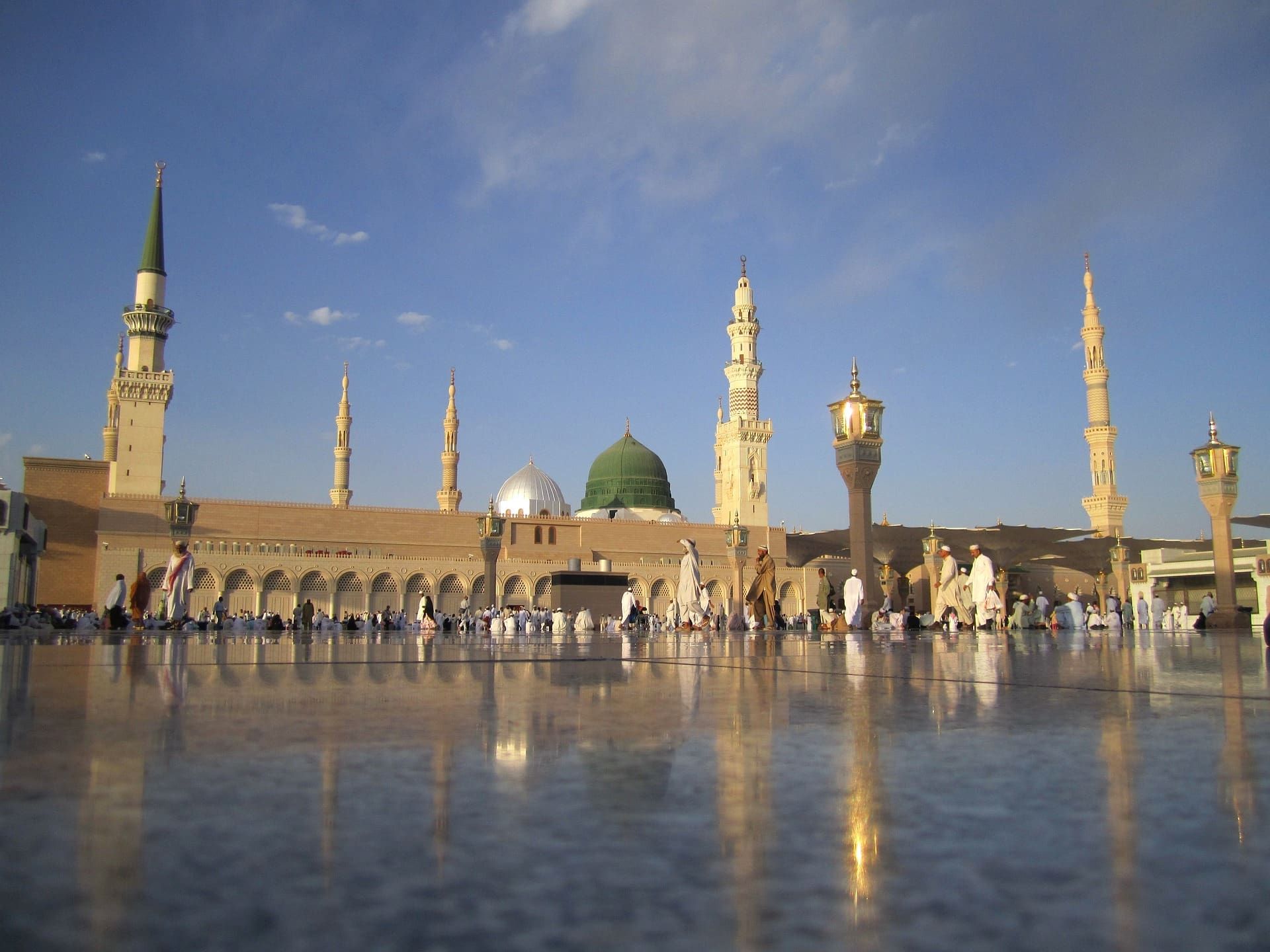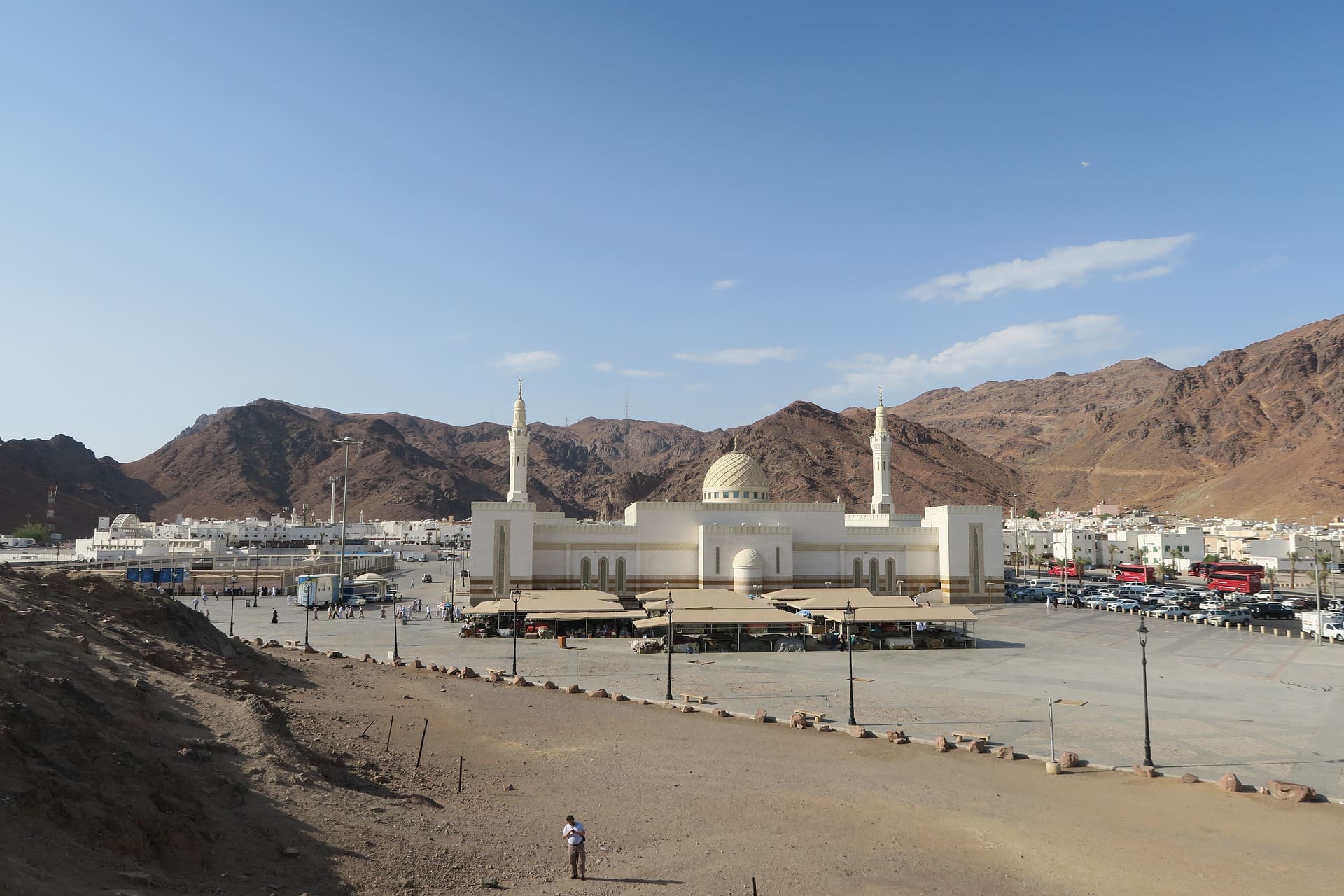Saudi Arabia
desert, islam, oil, modernization, cultural
About
Saudi Arabia
Culture and Religion
Where to go
How to get there
Visa Requirements
Travelling Budget
About Saudi Arabia
Saudi Arabia, officially known as the Kingdom of Saudi Arabia, is a sovereign state located in the Middle East, occupying the majority of the Arabian Peninsula. It is renowned for being the birthplace of Islam and home to the two holiest cities in Islam, Mecca and Medina.
Saudi Arabia is often associated with its vast desert landscapes, dominated by the Arabian Desert. This arid region has shaped the country’s climate, with extremely hot summers and mild winters. The country’s geography also includes the Red Sea and the Persian Gulf, providing it with access to important trade routes.
One of the most significant aspects of Saudi Arabia is its abundance of oil reserves. It is one of the world’s leading oil producers and exporters, playing a crucial role in the global energy market. The nation’s oil wealth has been instrumental in its economic growth and development.
Historically, Saudi Arabia has been ruled by the Al Saud family, with King Salman currently serving as the country’s monarch. The government follows a strict interpretation of Islamic law, known as Sharia, which influences social, cultural, and legal aspects of Saudi society.
In recent years, Saudi Arabia has embarked on an ambitious reform plan known as Vision 2030, aimed at diversifying its economy and reducing dependence on oil. The plan focuses on sectors such as tourism, entertainment, technology, and renewable energy.
Cultural traditions and religious practices remain important in Saudi society, with the annual Hajj pilgrimage in Mecca attracting millions of Muslims from around the world. However, the country has also undergone social changes, with an increasing number of women entering the workforce and participating in public life.
Saudi Arabia’s geopolitical role in the region is significant. It is a key ally of Western countries, particularly the United States, and has been involved in various regional conflicts and alliances. The country faces challenges such as youth unemployment and maintaining social stability, but its strategic importance and economic influence ensure it remains an influential presence in the Middle East.
Culture and Religion
Culture and religion are deeply intertwined in Saudi Arabia, a country known for its conservative interpretation of Islam. Islam is the state religion, and the majority of the population adheres to the Sunni branch of Islam. The two holiest cities in Islam, Mecca and Medina, are located in Saudi Arabia, making it the center of religious pilgrimage for Muslims worldwide.
Islamic values play a significant role in shaping Saudi Arabian culture. The principles of modesty, respect, and hospitality are highly valued and are often reflected in daily life. Traditional dress for men consists of the thobe (a loose, ankle-length garment) and a headdress called the ghutra or shemagh, while women wear the abaya (a loose black cloak) and often cover their heads with a hijab or niqab.
Gender segregation is prevalent in many aspects of Saudi society. Public spaces, such as restaurants and public transportation, often have separate areas for men and women. However, recent reforms have aimed to improve gender equality, with women gaining more rights and opportunities, such as the ability to drive and participate in sports.
Islamic practices and traditions are observed through various rituals, such as the five daily prayers, Ramadan fasting, and the annual Hajj pilgrimage. The holy month of Ramadan holds great significance, with Muslims observing strict fasting from dawn to sunset and engaging in acts of charity and prayer.
Saudi Arabian culture is rich in arts, literature, and music, often drawing inspiration from Islamic themes. Traditional folk dances such as the Ardah reflect the country’s heritage, while modern art and cultural festivals are gaining prominence.
Overall, Saudi Arabia’s culture and religion heavily influence the daily lives, customs, and traditions of its people, making it a unique and distinctive country in the Middle East.
Where to go

The Two Holy Cities
Mecca and Medina are the two holiest cities in Islam, attracting millions of Muslims from around the world for pilgrimage each year. Mecca is home to the Kaaba, the most sacred site in Islam, while Medina is home to the Prophet’s Mosque.

Riyadh
The capital city of Saudi Arabia, Riyadh, offers a blend of modernity and rich history. Visit the King Abdulaziz Historical Center, which includes the National Museum of Saudi Arabia, to explore the country’s heritage. Stroll through the vibrant Souq Al Zal, and enjoy panoramic views of the city from the Kingdom Centre Tower.

Red Sea Coast
Saudi Arabia’s Red Sea coast offers stunning coral reefs, pristine beaches, and opportunities for diving, snorkeling, and water sports. Explore the marine life at destinations like Jeddah’s Corniche, King Abdullah Economic City, or the Farasan Islands.

Madain Saleh
This UNESCO World Heritage site, also known as Al-Hijr, features ancient Nabatean tombs carved into the sandstone cliffs. Madain Saleh is an archaeological treasure, showcasing the rich history and culture of the region.
Note: These highlights represent just a fraction of what Saudi Arabia has to offer. Each region has its own unique attractions, historical sites, and natural wonders, making the country a diverse and intriguing destination to explore.
How to get there
Getting to Saudi Arabia is relatively straightforward, with various transportation options available.
By air, the easiest way to reach Saudi Arabia is by flying into one of its international airports, such as King Khalid International Airport in Riyadh, King Abdulaziz International Airport in Jeddah, or King Fahd International Airport in Dammam. These airports are well-connected to major cities around the world, serviced by many international airlines.
If you are in a neighboring country, you can also consider entering Saudi Arabia by road. Several border crossings exist with countries like the United Arab Emirates, Jordan, and Kuwait. It is important to check visa requirements and travel advisories before attempting a road trip into Saudi Arabia.
Once inside Saudi Arabia, domestic air travel is a convenient option for getting around its vast territory. Saudi Arabian Airlines (Saudia) offers domestic flights connecting major cities, while other regional carriers also operate domestic routes.
Alternatively, you can travel within Saudi Arabia by road. The country has well-developed road networks, connecting major cities and towns. Rental cars are readily available, and taxis and ride-hailing services are also widely accessible.
It is essential to have the necessary travel documents, including a valid passport and the appropriate visa for Saudi Arabia. Saudi Arabia has specific visa regulations and entry requirements, so it’s important to check with the Saudi Arabian embassy or consulate in your home country to obtain the correct visa and travel information.
Remember to review the latest travel advisories and follow any health and safety guidelines provided by authorities when planning your journey to Saudi Arabia.
Visa Requirements
Visa requirements for Saudi Arabia can vary depending on your nationality and the purpose of your visit. It is important to check the specific visa regulations for your country before planning your trip. However, here are some general guidelines:
1. Tourist Visa: Saudi Arabia now offers tourist visas to citizens of select countries. You can apply for a tourist visa online through the official Saudi Arabia e-visa website or through an authorized travel agent. The visa is usually valid for multiple entries and allows for a stay of up to 90 days. Requirements may include a valid passport, a recent passport-size photo, and a completed application form.
2. Business Visa: If you are visiting Saudi Arabia for business purposes, such as attending conferences, meetings, or exhibitions, you will likely need a business visa. This visa can be obtained through an invitation from a Saudi host or sponsor. The requirements typically include a letter of invitation, a valid passport, and a completed visa application form.
3. Work Visa: Those planning to work in Saudi Arabia must obtain a work visa, which is typically sponsored by an employer in the country. The employer will handle the visa application process, including obtaining a work permit and arranging for medical examinations.
4. Visit Visa: If you have family or friends residing in Saudi Arabia and wish to visit them, you may require a visit visa. This visa is sponsored by a Saudi citizen or resident, who must initiate the visa application process and provide the necessary documentation.
It is recommended to consult with the Saudi Arabian embassy or consulate in your country or visit the official website of the Saudi Ministry of Foreign Affairs for the most accurate and up-to-date information on visa requirements for your specific situation.


Travelling Budget
The travel budget for Saudi Arabia can vary depending on various factors, including your travel style, duration of stay, accommodation choices, and activities you plan to engage in. Here are some general cost considerations to help you plan your budget:
1. Accommodation: Accommodation costs in Saudi Arabia can range from budget-friendly options to luxury hotels. The major cities such as Riyadh, Jeddah, and Dammam have a variety of accommodation choices to suit different budgets. Expect to pay more for centrally located and higher-end hotels.
2. Transportation: Domestic flights within Saudi Arabia are relatively affordable, especially if you book in advance. Public transportation options such as buses and taxis are also reasonably priced. Rental cars are readily available but can add to your expenses.
3. Food: Dining out in Saudi Arabia can range from inexpensive local eateries to higher-end restaurants. Traditional Arabic cuisine is widely available and can be relatively affordable depending on where you eat. Western or international cuisine may be more expensive.
4. Entrance Fees and Activities: Consider the cost of entrance fees for attractions, museums, and historical sites you plan to visit. Excursions to places like the Red Sea or Arabian Desert may require additional expenses, such as hiring a tour guide or renting equipment.
5. Visa Fees: Depending on your nationality, you may need to pay a fee for your visa application or visa-on-arrival. Ensure you have accounted for this cost when planning your trip.
Additionally, remember to budget for miscellaneous expenses such as souvenirs, shopping, and any additional services you may require.
It is advisable to research and compare prices, take advantage of deals or discounts when available, and plan ahead to optimize your travel budget.
What makes your journey easier
Everything you need to know about what to bring to make your travels easier, more safe and fun
Be Mindfull
Gadgets
Gear
Insurance
Visa

























